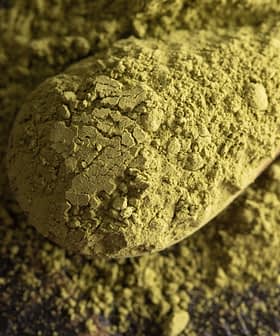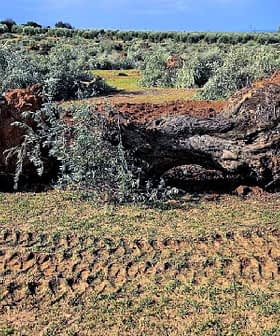Study Recommends Olive Oil Byproduct as Organic Fertilizer
Recent studies have shown that alperujo, a by-product of olive oil production, can be used as fertilizer in organic farming due to its rich nutrient content, but it must undergo composting first to eliminate toxic polyphenols. The use of alperujo as fertilizer could save the Spanish olive oil industry millions of euros annually and reduce carbon emissions, but lack of technical knowledge and infrastructure investment are hindering its widespread adoption.

Recent studies conducted at the Universidad de Sevilla’s School of Agricultural Engineering concluded that alperujo, the solid by-product of extracting olive oil by the two-phase centrifugation system, can be reused as fertilizer in organic farming.
Similar in appearance to slurry, alperujo is rich in nitrogen, potassium and organic material. The substance also contains toxic amounts of polyphenols, which is why it must undergo a thorough composting process before it is safe to use in agriculture.
According to researchers, replacing chemical fertilizers with the natural byproduct could save the Spanish olive oil industry up to €60 million annually. Last year, Spain produced a total of 5.5 million tons of alperujo, 82 percent of which came from the province of Andalusia.There it is the second most abundant natural agricultural byproduct after manure, which is also widely used as fertilizer in the region.
Several organic olive oil farms in Jaén and Córdoba have already started using alperujo for such purposes.
The benefits of alperujo are more than just economic, according to University professor Eusebio Carmona Chiara. Replacing chemical fertilizers, particularly nitrogen-based ones, with the natural byproduct would reduce the industry’s carbon footprint by releasing lower amounts of CO2 into the atmosphere. The use of alperujo would also result in so-called “carbon sequestration” in which carbon is stored in the soil for several years before being released into the atmosphere.
Despite these benefits, only 45,000 tons of alperujo was composted in Andalusia in 2009, less than 10 percent of the total amount produced annually. Researchers blame the lack of technical knowledge required to compost the substance as well as the lack of investment in infrastructure required to carry out the process.
The Ministry of Agriculture of Andalusia has agreed to supply up to 50 percent of the funds needed to develop this infrastructure with a €100,000 ceiling for each processing plant.









